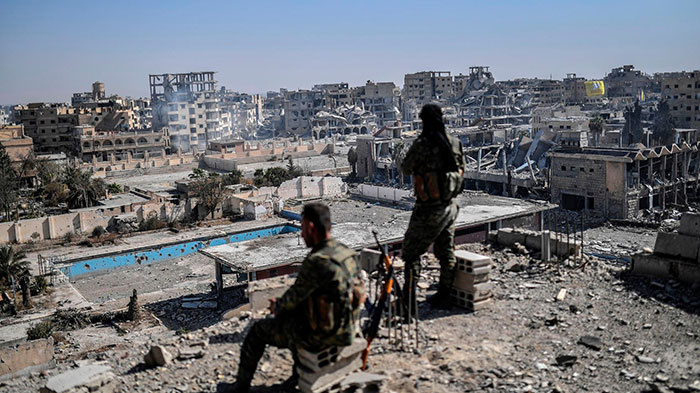Iran Nuclear Deal Paved Way for Daesh Defeat: Analyst

There is no doubt that Iran is a regional power. However, it is not the only regional power and will not be. We should not forget that if the war was imposed, the peace was too. Within the global system and its multifaceted complex games, we are placed in equations where we are an actor, rather than a playmaker. We had better to play the roles in a way that both protects our national interests and ward off the risks imposed on the country.
In political, military and economic equations, a country's economic capacity and potential plays a determining role in power equations. Every country's foreign policy apparatus is at the disposal of its national interest much in the same way that military power works for its upswing but it is the economy that nourishes both. From among all the institutions that have a bearing on the power equation, economy is the essential driving force without which it is impossible to realize national goals.
Certain individuals should be pulled back down to earth to have a better understanding of the equations. The nuclear deal and the thrashing of Daesh should not be seen as results of two contradictory methods or used against one another. The JCPOA and the Daesh defeat result from two complementary methods. The victory against Daesh (albeit with certain considerations) was in large part the product of economic and political breakthroughs achieved by the deal. If it was not for the JCPOA, there was Daesh. If it was not for the JCPOA, Iran was still under threats of the UNSC Chapter 7, stymied by bottlenecks of economic sanctions, in which case the Daesh threat would not have come to an end but potentially spread into Iran's soil. Attention to the emergence of the Trump phenomenon may make this view more easily comprehensible. The JCPOA brought many openings in oil sales and transfer of the money earned, shipping insurance, capital inflow, and investments that helped improve Iran's status compared to the sanctions era. The fall of the Soviet Union empire came because of its economic retardation. Acceptance of Resolution [598] and the nuclear deal was also in large part motivated by economic considerations and sanctions. With an economy contained in the nuclear crisis, Iran could not very much afford to engage in the fight against Daesh. Thus, the defeat of Daesh is somewhat a product of the JCPOA. Wars always begin and continue, owing more than anything to strong economy. It needs budget to go to war, fight the threats, and pursue national goals. The nuclear agreement provided a recess, one result of which was the win against Daesh.
However, the problems of the JCPOA and those caused by the emergence of Daesh have yet to end. National solidarity should continue to be the main goal of the state and nation vis-à-vis the threats. The nuclear deal and the Daesh defeat should be viewed as the result of a macro strategy in two different tactics. Any other approach could project an image of split, rather than unity, in fundamental issues of the country for foreigners.
The post-nuclear deal and post-ISIS eras are other stages of the endeavor and will be no easier (if not more difficult) than political and military struggles that preceded them. Just as the JCPOA has been sabotaged, the post-Daesh order will have no less political and military ups and downs. In neither the post-JCPOA nor the post-Daesh era, Iran should become engaged with partisan calculations, overlooking the enemy. Any effort to hijack victories for one's own front rather than the country is going astray. We should not leave our posts on Uhud, greedy with spoils of the unfinished war. There are still many problems and turns ahead; too many fresh plot, political and military, in different guises. Much like new paths are being used by the US to pressure Iran in diplomatic spheres, the enemy aims to launch new military fronts, getting over which is only possible through public solidarity. We need to see the JCPOA and the Daesh defeat in the same line. Each alleviated some of the concerns among Iranians, endorsing the emergence of Iranian wisdom in political and military spheres.
One last thing to note is that neither the JCPOA nor Daesh is a done deal. Iran has a long way to go before gaining independence. Iran's history is full of self-mutilation and plights resulting from a failure to properly understand the situation and the potentials in the country and the world. The country is still suffering but if it is understood that the nuclear deal and the Daesh defeat come of the same will in the form of two methods, most problems can be resolved through solidarity.

